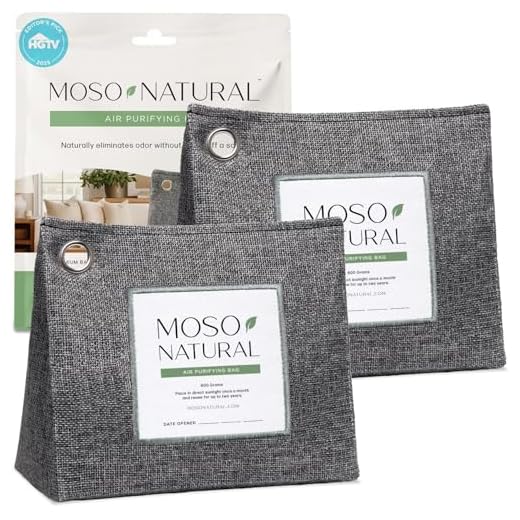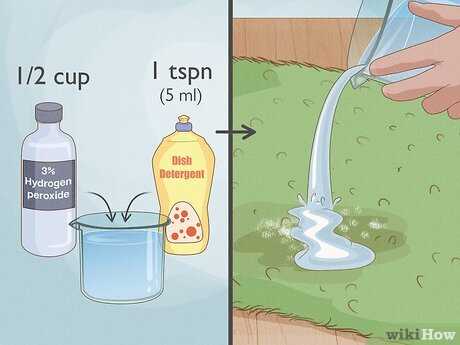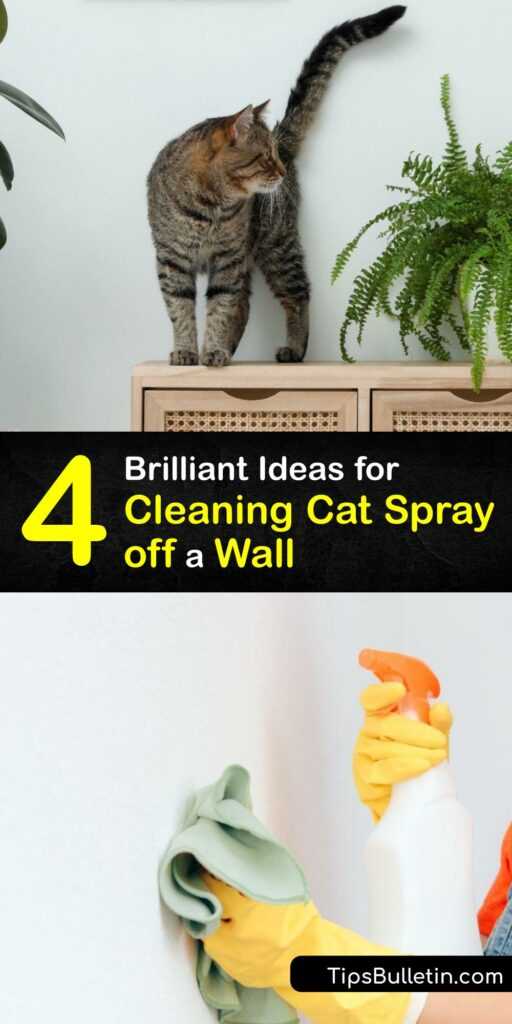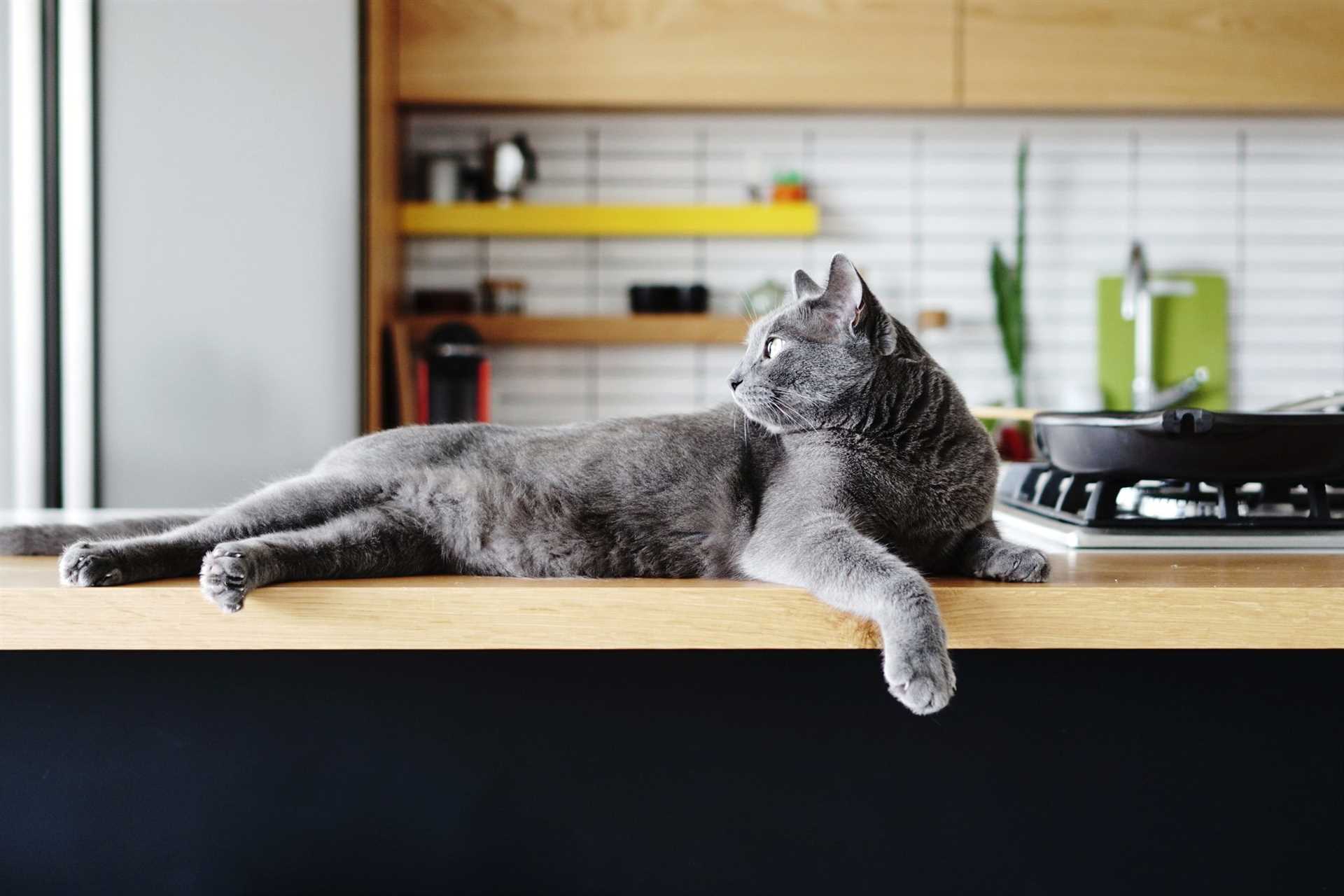



First off, grab some white vinegar. Mix equal parts of water and vinegar in a spray bottle. This concoction is fantastic for neutralizing unpleasant odors. Spritz the affected areas generously, let it sit for a few minutes, then wipe it clean. The acetic acid in vinegar breaks down the odor-causing compounds effectively.
Next, get baking soda involved. Sprinkle it over the areas that have been marked. Allow it to sit for several hours or overnight. This natural deodorizer absorbs and traps odors, making it a great ally in the battle against lingering scents.
For a powerful boost, consider hydrogen peroxide. Mix one part hydrogen peroxide with two parts water, and add a drop of dish soap. Test a small area first to ensure there’s no discoloration, then apply it to the stained spots. It not only helps in odor removal but also tackles any discoloration caused by those pesky incidents.
Lastly, ensure your living space is well-ventilated. Open windows and doors to let fresh air circulate. This simple step can significantly reduce the intensity of any remaining odors, making your environment much more pleasant.
Tips for Eliminating Unpleasant Odors
Start with white vinegar. Mix equal parts of vinegar and water in a spray bottle, then spritz the affected areas. The acidity neutralizes odors effectively.
Baking soda works wonders too. Sprinkle it generously on surfaces where the scent lingers. Leave it for a few hours, then vacuum it up. This absorbs unwanted odors efficiently.
- Activated charcoal is another great option. Place bowls of it around the room to capture lingering scents.
- Essential oils can freshen the air. Mix a few drops with water in a spray bottle and mist the space.
Using enzyme cleaners specifically designed for organic stains is highly recommended. They break down the odor-causing substances at a molecular level.
Steam cleaning carpets and upholstery can also eliminate stubborn odors. The heat and moisture lift the particles away.
Keep the windows open and use fans to improve air circulation. Fresh air helps dissipate any remaining scent.
Regularly wash curtains, cushions, and other soft furnishings to maintain a fresh environment.
Lastly, if the problem persists, consider consulting a professional cleaning service that specializes in odor removal.
Identify the Affected Areas in Your Home
Check spots where I usually hang out. Pay close attention to corners, furniture, and my favorite resting places. Look for damp areas, as they might be hiding odors.
Use Your Nose
Follow your sense of smell. If you detect something off, investigate further. Rely on your nose to pinpoint specific locations that need attention.
Inspect Surfaces
Examine fabrics like curtains, cushions, and carpets. These materials can absorb scents easily. Don’t forget to check the walls and baseboards, especially near the ground where I might have left a mark.
Choose the Right Cleaning Products for Odor Control
For tackling unpleasant scents, enzyme-based cleaners are my top pick. They break down the compounds that cause those lingering odors effectively. Look for products specifically designed for pet messes; they usually contain these enzymes. Make sure to read the labels to confirm they target the type of issue you’re facing.
Natural Alternatives
If you prefer eco-friendly solutions, vinegar and baking soda are fantastic options. Mixing equal parts of vinegar and water in a spray bottle can neutralize odors. After applying, sprinkle baking soda on the area, let it sit for a few hours, then vacuum. This combination works wonders without harsh chemicals.
Commercial Products
When choosing commercial options, avoid those with strong fragrances that simply mask the problem. Instead, opt for products that advertise odor elimination rather than just covering it up. Brands that focus on natural ingredients can be more gentle on surfaces and safer for everyone in my domain.
Always test any cleaner on a small, inconspicuous area first to ensure it doesn’t damage your surfaces. This step is crucial to maintaining the integrity of your favorite spots around the home.
Step-by-Step Guide to Cleaning Surfaces
Gather the following supplies: white vinegar, baking soda, an enzyme cleaner, paper towels, and a spray bottle. Begin by blotting the affected areas with paper towels to absorb any liquid. Avoid rubbing, as this can spread the issue further.
Surface Treatment
Mix equal parts of white vinegar and water in a spray bottle. Spray the solution generously on the targeted spots and let it sit for about 10 minutes. This helps in breaking down the odor-causing compounds.
After waiting, dab the area again with clean paper towels. If any residue remains, sprinkle baking soda over the damp area. Allow it to sit for several hours or overnight to absorb remaining odors.
Final Cleaning Steps
Once the baking soda has settled, vacuum the area thoroughly. For persistent odors, apply an enzyme cleaner according to the manufacturer’s instructions. This step helps eliminate tough odors at the source.
| Supplies | Purpose |
|---|---|
| White Vinegar | Neutralizes odors |
| Baking Soda | Absorbs smells |
| Enzyme Cleaner | Breaks down odor-causing compounds |
| Paper Towels | Dabs and cleans surfaces |
| Spray Bottle | Mixes and applies cleaning solutions |
Follow these steps diligently for a fresher environment. Regular maintenance will ensure that any lingering odors are addressed promptly.
Treating Carpets and Upholstery
For effective treatment of carpets and upholstery, act quickly. Blot the area with paper towels or a clean cloth to absorb as much liquid as possible. Avoid rubbing, as this can spread the issue further.
Cleaning Solutions
Mix equal parts of white vinegar and water in a spray bottle. Spray the affected area generously and let it sit for about 10-15 minutes. This natural solution helps neutralize odors. Afterward, blot with a clean cloth until the area is damp but not soaked.
Enzymatic Cleaners

Consider using enzymatic cleaners specifically designed for pet odors. Apply according to the manufacturer’s instructions, ensuring it penetrates deep into the fibers. Allow it to dry completely for optimal results. For stubborn areas, repeat the process as needed.
For any questions about your furry friends, consult a vet for senior cats near me. They can offer tailored advice for keeping our home fresh and clean.
Best Natural Remedies for Cat Spray Smell

For tackling unpleasant odors, I recommend using baking soda. Sprinkle it generously on the affected areas, leave it for a few hours, then vacuum it up. This method absorbs the unpleasant scent effectively.
White vinegar is another fantastic option. Mix equal parts of vinegar and water in a spray bottle, and apply it to the surfaces. The acidic nature of vinegar neutralizes the odor. After spraying, wipe with a clean cloth.
Essential oils, like lavender or lemon, can add a pleasant fragrance. Dilute a few drops in water and spray around the area. Make sure to keep it away from my toys and food, as some oils can be harmful to pets.
Citrus Solutions
Citrus peels can also help. Place fresh lemon or orange peels in the corners of rooms or near the problem spots. The natural oils in the peels can mask the unwanted scent.
If you’re curious about cleaning tools, check out this link to see if a does a loofah really work as dish scrubber can assist in your cleaning routine.
Hydrogen Peroxide Mix

A mixture of hydrogen peroxide, baking soda, and dish soap can work wonders. Combine one cup of hydrogen peroxide, a tablespoon of baking soda, and a few drops of dish soap in a spray bottle. Apply it to the affected areas, let it sit for a few minutes, then clean it up. This combination tackles odors at the source.
Preventing Future Incidents of Feline Marking
To deter unwelcome marking behaviors, ensure my litter box is always clean and accessible. I prefer a tidy space, so regular scooping is crucial. Consider the type of litter; some textures and scents may be more appealing to me than others. Experiment with different options to find what I prefer.
Environmental Enrichment
Provide engaging toys and scratching posts to keep me entertained. A bored kitty may seek alternative ways to express frustration or territory. Rotate my toys regularly to maintain interest and encourage playfulness.
Stress Reduction Techniques
Identify and minimize stress triggers in my environment. Sudden changes, loud noises, or new pets can upset me. Create a calm atmosphere with cozy hiding spots, soft bedding, and soothing music. Consider using pheromone diffusers to promote relaxation and comfort.
Regular vet check-ups are essential to ensure my health is optimal, as discomfort or illness can lead to behavioral changes. If issues persist, consulting an animal behaviorist can provide additional strategies tailored to my needs.
FAQ:
What are some effective methods to eliminate cat spray odor from my home?
To effectively remove cat spray odor, consider several methods. First, clean the affected area thoroughly with a mixture of water and vinegar, which can neutralize odors. Another option is to use enzymatic cleaners specifically designed for pet odors; these break down the compounds in cat spray and help remove the smell. Baking soda is also useful; sprinkle it on the area, let it sit for a few hours, and then vacuum it up. Additionally, using air purifiers can help eliminate lingering smells from the air.
How can I prevent my cat from spraying in the house?
Preventing a cat from spraying involves addressing the underlying causes of the behavior. Start by ensuring that your cat is spayed or neutered, as this can significantly reduce marking behavior. Providing sufficient litter boxes (one for each cat, plus one extra) and keeping them clean can also help. Creating a stress-free environment by providing hiding spots and engaging with your cat through play can minimize anxiety, which often leads to spraying. If the problem persists, consulting with a veterinarian or animal behaviorist may be necessary to explore further options.









